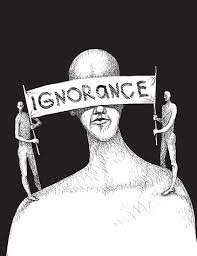Kirfel, L., & Phillips, J.
Cognition
Volume 231, February 2023, 105316
Abstract
Norm violations have been demonstrated to impact a wide range of seemingly non-normative judgments. Among other things, when agents' actions violate prescriptive norms they tend to be seen as having done those actions more freely, as having acted more intentionally, as being more of a cause of subsequent outcomes, and even as being less happy. The explanation of this effect continue to be debated, with some researchers appealing to features of actions that violate norms, and other researcher emphasizing the importance of agents' mental states when acting. Here, we report the results of two large-scale experiments that replicate and extend twelve of the studies that originally demonstrated the pervasive impact of norm violations. In each case, we build on the pre-existing experimental paradigms to additionally manipulate whether the agents knew that they were violating a norm while holding fixed the action done. We find evidence for a pervasive impact of ignorance: the impact of norm violations on non-normative judgments depends largely on the agent knowing that they were violating a norm when acting. Moreover, we find evidence that the reduction in the impact of normality is underpinned by people's counterfactual reasoning: people are less likely to consider an alternative to the agent's action if the agent is ignorant. We situate our findings in the wider debate around the role or normality in people's reasoning.
General discussion
Studies show that norm violations influence a wide range of domains, including judgments of causation, freedom, happiness, doing vs. allowing, mental state ascriptions, and modal claims. A continuing debate centers on why normality has such a pervasive impact, and whether one should attempt to offer a unified explanation of these various effects (Hindriks, 2014). In this study, we found evidence that the epistemic state of norm-violating agents plays a fundamental role in the impact of norms on non-normative judgments. Across a wide range of intuitive judgments and highly different manipulations of an agents' knowledge, we found that the impact of normality on non-normative judgments was diminished when the agent did not know that they were violating a norm. More precisely, the agent's knowledge of the norm violation determined the extent to which abnormal actions increased judgments of causation, decreased attribution of force, increased attributions of intentional action, and so on. In other words, the impact of ignorance appears to be as pervasive as the impact of normality itself. In addition, our study showed that the agent's epistemic state also influenced to what extent people engage in reasoning about alternatives to the agent's action. If the agent was ignorant when they violated a norm, people were less inclined to consider what the agent could have done differently.
At the broadest level, the current results provide evidence that the pervasive impact of normality likely warrants a unified explanation at some level: we considered a specific feature that had been shown to moderate the impact of normality in one domain (causation) and demonstrated that this same feature of the impact of normality can be found across a wide range of other domains. This finding suggests that the impact of norms arises from a shared underlying mechanism that is recruited across domains. Specific accounts may, of course, seek to incorporate agents' epistemic states into their respective theory of how normality influences judgments in one particular domain. However, such an approach will miss out on a generalization and will necessarily be less parsimonious. Accordingly, we turn now to considering two broad approaches to offering a unified account of the pervasive impact of ignorance.



